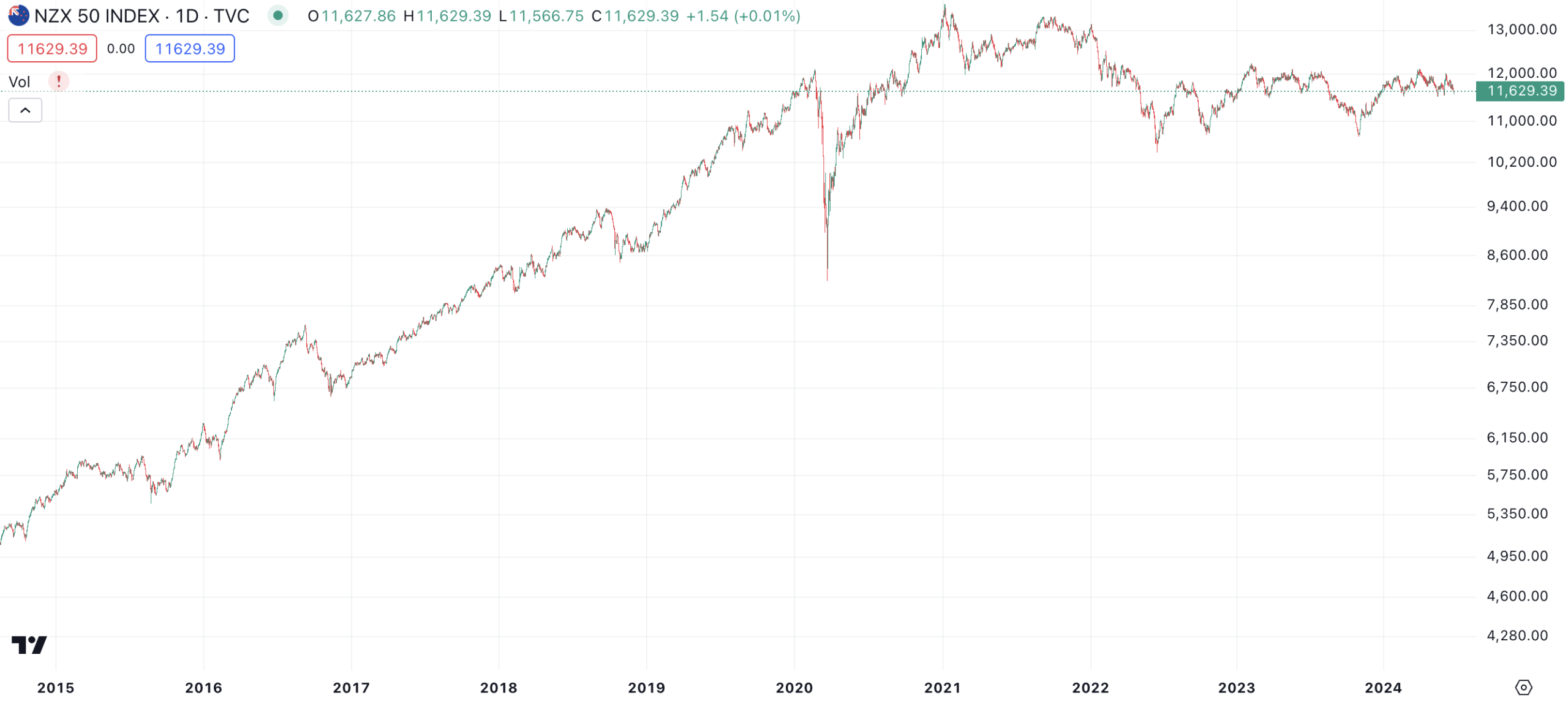Investing in NZX shares: Should Aussie investors say ‘sweet as’ to this >A$150bn market?

Have you ever considered investing in the NZX (New Zealand Exchange)? As the nearest overseas market to Australia (at least on the East Coast) it is certainly worth knowing about and it might suit some investors. However, there are both advantages and disadvantages with this market that are worth knowing before taking the deep dive.
Meet the NZX
New Zealand’s bourse has many similarities to Australia’s own ASX. The company today is an amalgamation of several regional exchanges, some of which began back in the 19th century. It has a market cap of NZ$165.5bn which is A$153.bn and hosts roughly 150 listed companies as nearly three dozen ETFs.
The ASX has a market cap of over $2.5tn and over 2,200 securities listed. So you can see the NZX is certainly a smaller exchange compared to Australia. Nevertheless, it hosts several companies that are dual-listed including Air New Zealand (ASX:AIZ), Michael Hill (ASX:MHJ), A2 Milk (ASX:A2M), Downer (ASX:DOW) and SkyCity (ASX:SKC).
Advantages of investing in the NZX
The NZX’s smaller size is both a blessing and a curse for investors. It allows investors to have less exposure to major overseas markets. Many of New Zealand’s listed companies operate domestically (or just Trans-Tasman), meaning that investors can benefit from sector-specific growth, liquidity and company-specific events without worrying about political or currency risks associated with international markets.
For institutional investors it means that individual investors have more flexibility to buy and sell shares without having to worry about their transactions significantly impacting the overall market pricing. Also, they can move relatively large amounts of capital in and out with less disruption to the overall market.
Finally, we observe that the NZX has performed better than the ASX in the long run. Since the bottom of the GFC in March 2009, the NZX 50 has performed over three times better than the ASX.

NZX 50 10-year performance, log scale (Source: TradingView)
Disadvantages of investing in the NZX
The market’s smaller size also presents some drawbacks when compared to investing in the ASX or NASDAQ. Most obviously, investors on the NZX may have fewer investment options, as there are fewer large companies listed on it. There are also far fewer IPOs on the NZX – there have been some years without any new listings at all, with the most ambitious companies opting to list on the ASX first.
In addition, there is generally less liquidity on the NZX when compared to other global exchanges. Liquidity refers to how easy it is for investors to buy and sell securities on an exchange. The lower liquidity on the NZX could lead to higher trading costs and wider bid-ask spreads (the difference between buying and selling prices), making it more difficult for investors to make profits from trading.
Finally, there may be a lack of quality research available for stocks listed on the NZX. Even Kiwi analysts who create research reports tend to focus their attention on larger markets such as Australia, North America and Europe. This means that investors may not have access to quality investment advice when researching stocks listed in Aeotearoa. On top of this, you have tax obligations and forex considerations to worry about. For exchanges such as the US with no shortage of investment opportunities, those worries might be worth it. But not so much for smaller exchanges.
Conclusion
We think Australian investors shouldn’t go out of their way to invest in New Zealand’s Exchange. Investors wanting global growth options are better suited to larger exchanges where opportunities are more abundant.
What are the Best ASX Stocks to invest in right now?
Check our buy/sell tips

Blog Categories
Get Our Top 5 ASX Stocks for FY26
Recent Posts
Austal (ASX:ASB) Wins A$4bn Navy Deal: Is It Time to Buy the Dip?
Austal’s Defence Surge: What Investors Should Watch Austal (ASX: ASB) closed at A$6.30 on Friday, up 5.53% on the day,…
Oil Surges on Iran Crisis: Best ASX Energy Stocks to Buy Now
ASX Energy Stocks: What the Oil Spike Means Now Oil prices surged more than 5% in just two trading sessions…
ASX Reporting Season Halftime Report: 4 Stocks to Buy, Hold, or Avoid After This Week’s Results
ASX Reporting Season: What This Week’s Results Mean for Investors We are halfway through the ASX reporting season, and the…


